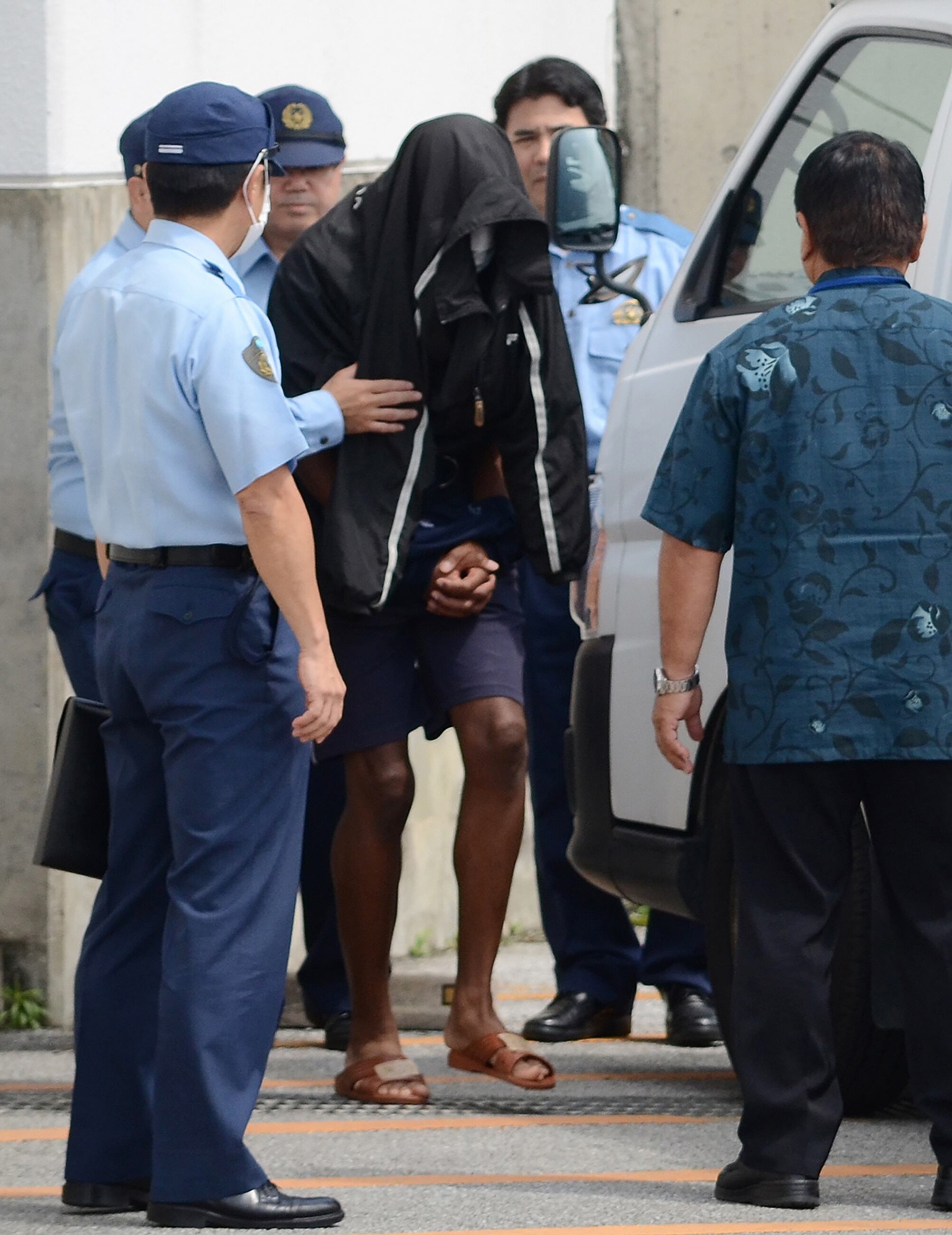U.S. military leaders in Japan are clamping down on troops' liberty, curfews and alcohol use ahead of the Memorial Day holiday after a sailor and a Marine veteran were charged with crimes on Okinawa.
All Okinawa-based service members on Okinawa will face off-base restrictions during a monthlong "period of unity and mourning," to honor two Japanese woman who allegedly became victims at the hands of U.S. service members, the commander of U.S. troops in Okinawa announced Thursday.
The new rules go into effect Friday and last until June 24, according to a message to all service members from Marine Lt. Gen. Lawrence Nicholson, the head of III Marine Expeditionary Force.
All local clubs and bars will be off limits. Troops who live on base will not be allowed to drink alcohol when they're off base. And those who live off base will be permitted to drink only while in their homes or on base.
All troops must be back in their residences by midnight. And off-base celebrations or hotel-room parties are now banned.
Troops are still allowed to eat at local restaurants, but they may not drink alcohol with their meals. Any vehicles that enter or leave military installations between midnight and 5 a.m. will be subject to sobriety checks.
"These measures are not intended as punishment," Marine Lt. Gen. Lawrence Nicholson wrote in a message to all service members on Thursday. "Rather, I seek to reaffirm our responsibilities as residents of Okinawa while demonstrating our deepest sympathies for the victims and their families."
In an email obtained by Military Times, a senior enlisted Marine told his troops it could easily become a punishment if service members don't take the situation seriously. on noncommissioned officer in Okinawa indicated that further restrictions might be imposed if U.S. troops act out of line.
"We are showing solidarity with the Okinawan people as they go through this period of mourning," the Marine wrote. "However, if we experience a bunch of jackassery out in town, this could quickly change to a punishment, and all need to understand that and take personal responsibility."
The new restrictions follow two high-profile crimes on Okinawa.
Kenneth Franklin Gadson, a Marine veteran who was working at Kadena Air Base as a civilian, is accused of murdering 20-year-old Rina Shimabukuro and dumping her body, according to Stars and Stripes [[[please add link]]]. The incident comes little more than two months after [[[Rank?]]]Justin Castellanos, a sailor assigned to Camp Schwab, was arrested for allegedly raping a Japanese woman.

Japanese policemen escort Kenneth Franklin Shinzato, a military contractor, to the prosecutor's office in Okinawa on May 21. The Marine vet, who works at the U.S. Kadena Air Base, has reportedly admitted to raping and killing 20-year-old Rina Shimabukuro, who had been missing since late April.
Photo Credit: JiJi Press/AFP/Getty Images
"This behavior adversely affects not only the victims of crime, but also the relationship we maintain with our Okinawan neighbors and the important bilateral relationship we share with the Ggovernment of Japan," Nicholson wrote in his message.
Liberty rules in Japan are reviewed regularly. In 2014, military leaders there loosened the rules, and troops were allowed to stay out later without a liberty buddy. Two years prior, the liberty requirements had been restricted following a series of crimes, including the rape of an Okinawan woman by a pair of U.S. sailors.
American civilians in Okinawa on official U.S. business or working as government contractors are also covered by the U.S. Status of Forces Agreement with Japan are "highly encouraged" to abide by the new rules, according to Nicholson's memo restrictions too.
"Any violation of this order by a member of the U.S. Armed Forces may result in punishment under the Uniform Code of Military Justice or administrative action," he Nicholson wrote in his message. "All other SOFA-status personnel, including family members, are reminded of their obligation to support this order."




